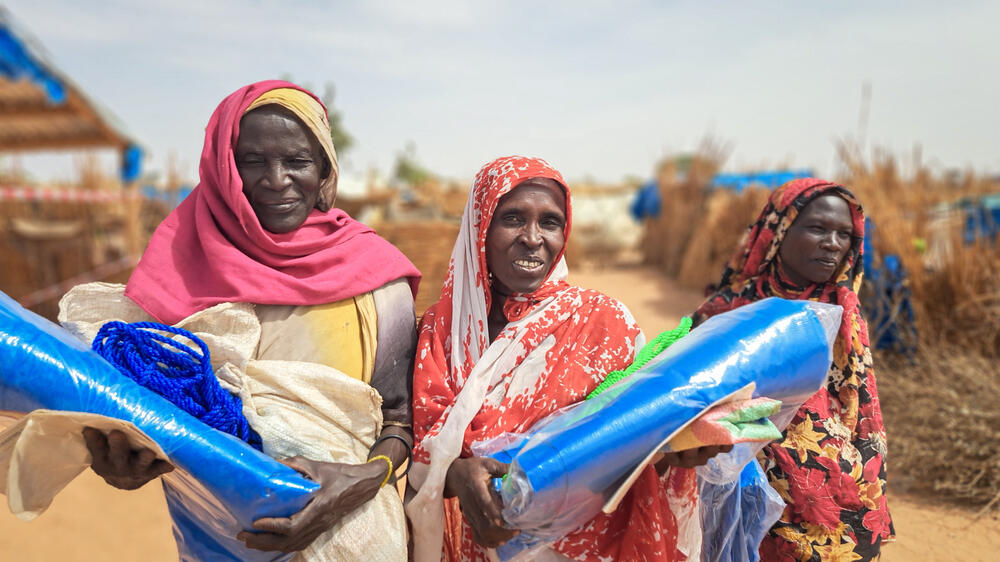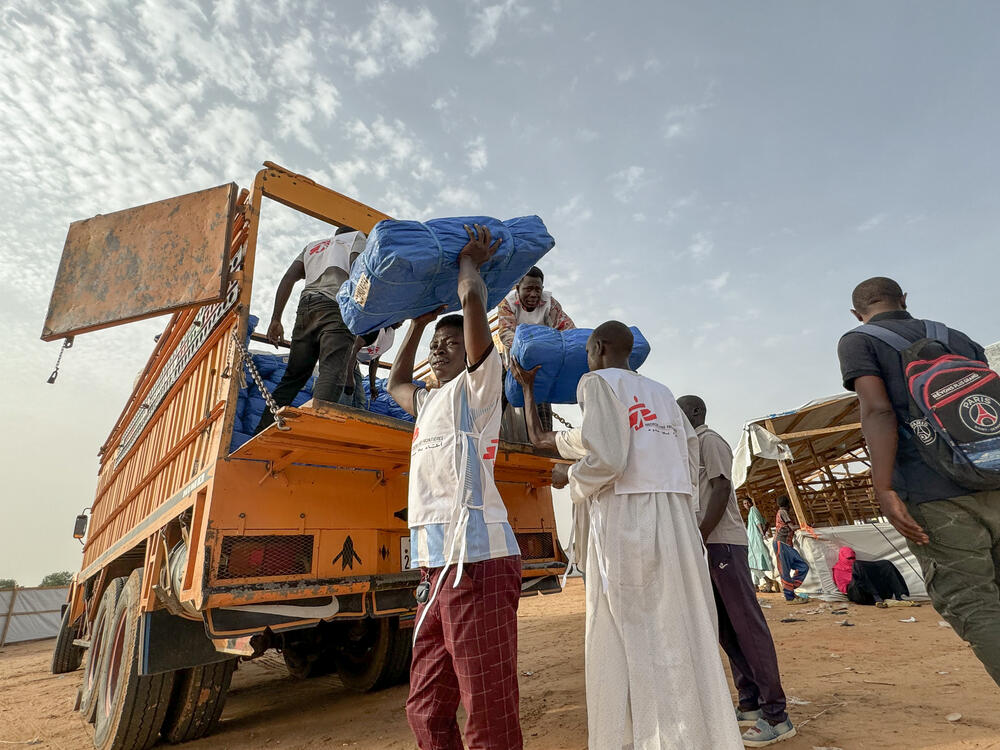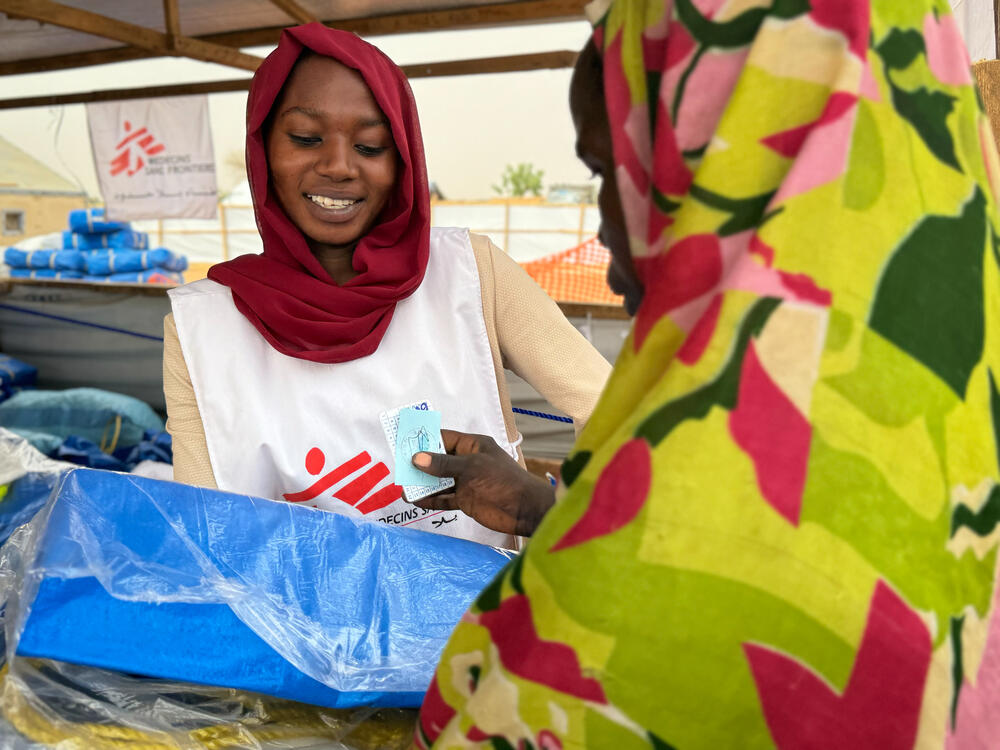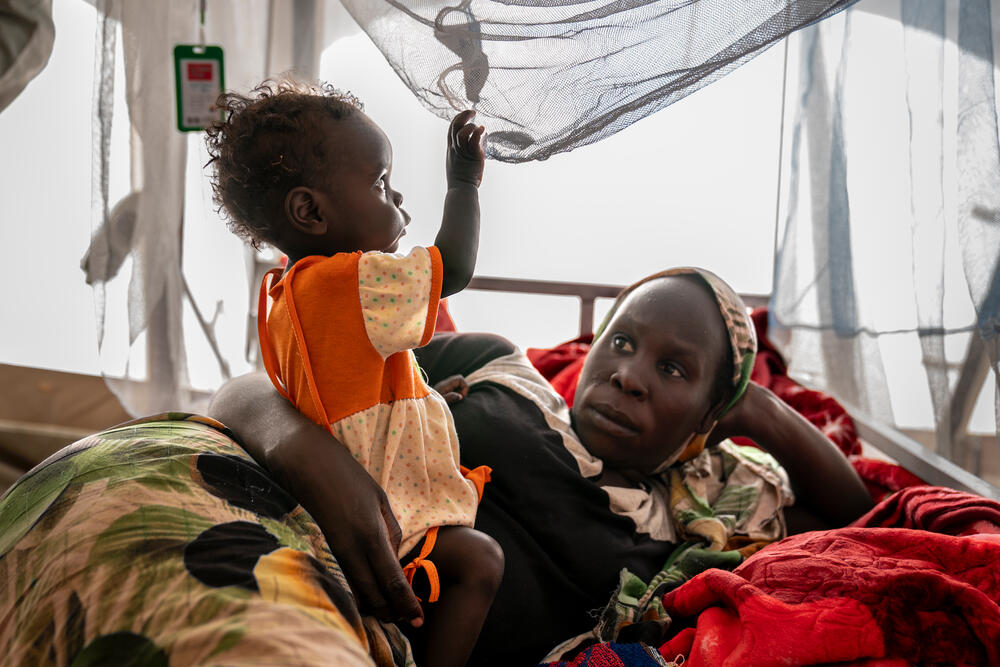Chad: MSF brings life-saving essentials to Sudan's refugees in ‘humanitarian void’
As the rainy season begins in Chad, Médecins Sans Frontières / Doctors Without Borders (MSF) is significantly scaling up its support for refugees who fled the war in Sudan.
MSF teams are distributing vast quantities of essential life-saving items such as plastic sheeting, mosquito nets, and bars of soap to support hundreds of thousands of refugees in Aboutengué camp and Adré transit camp in Eastern Chad.
Countless families in these camps have been living without proper shelter for over a year. This response fills a critical gap left by UN mandated agencies.
What are we doing in the Aboutengué camp?
- In June, MSF provided around 5,000 families with plastic sheeting.
- In May, we also provided 11,370 mosquito nets in the camp.
- For the last three months we have been distributing around 47,000 soap bars, with plans to continue this support for three more months.
These supplies are essential to prevent diseases associated with the rainy season, such as malaria and diarrhoea. Though essential, providing these supplies is also the minimum that can be done to preserve the dignity of these people and to protect them from diseases.
Engaging with communities
MSF has established regular contact with the refugee communities, consulting them on their urgent needs and responding to critical gaps.
“By consulting with community leaders and block leaders in Aboutengué camp, we knew that nearly 5,000 families were living in makeshift constructions without adequate roofing,” said Primo Mawazo Fungamali, logistics team leader for MSF in Aboutengué camp.
“The supplies we distribute enable them to take shelter and regain a sense of serenity amidst the onset of the rainy season.”
Plastic sheeting provides crucial shelter in the rainy season
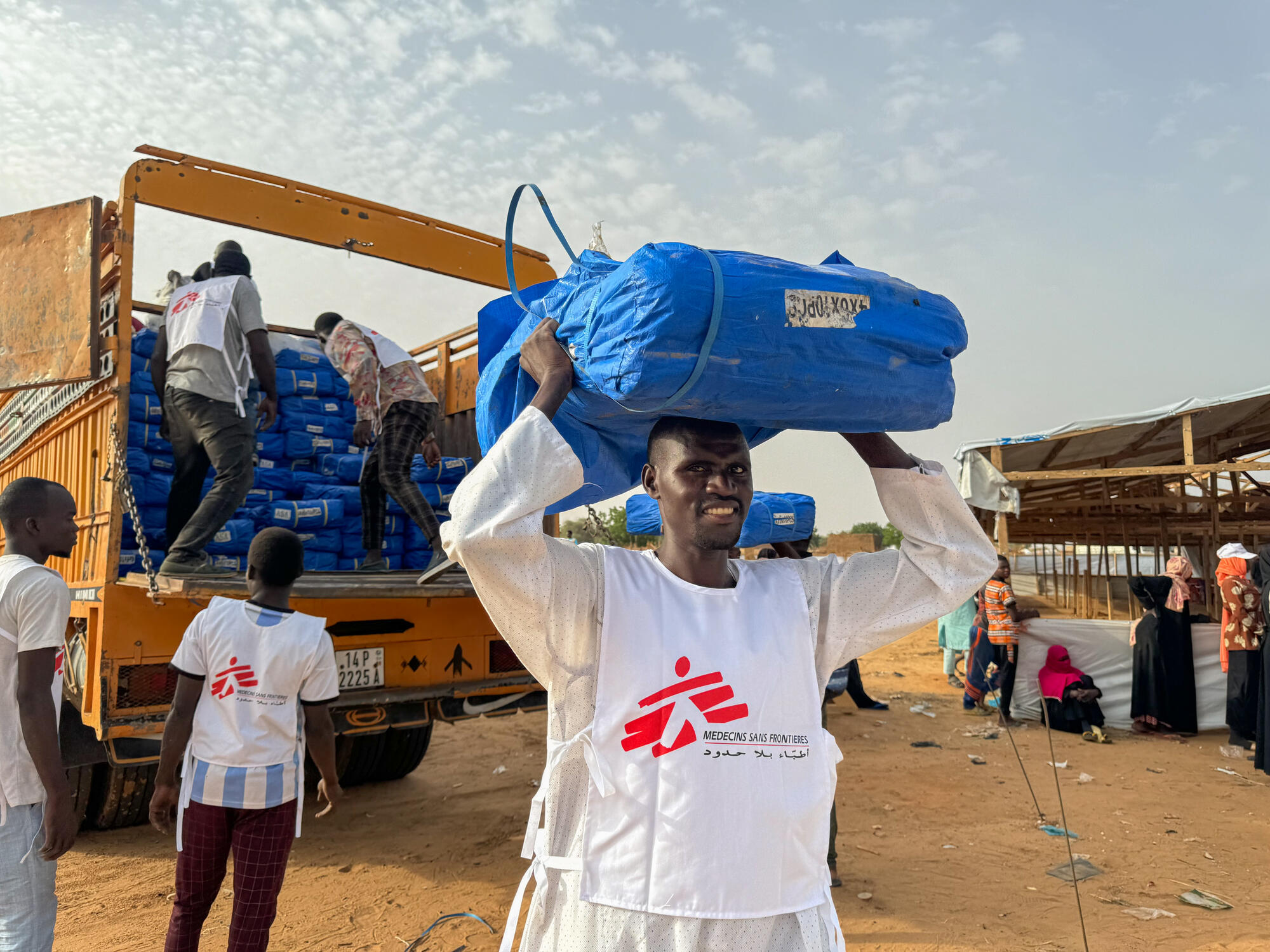
Expanding to Adré transit camp
- Since June 24, our teams have expanded these distribution activities to Adré transit camp, a temporary home to more than 180,000 displaced people, predominantly from Darfur. 90 percent of them are women and children.
- During the first three days of the ongoing distribution 14,370 families in Adré transit camp have received plastic sheeting, mosquito nets and several bars of soap each.
- MSF is committed to meeting the refugees’ basic needs and continues to supply 80 percent of the water in Adré transit camp.
“Here, the arrival of the rainy season means the massive return of mosquitoes, and with them, malaria,” says Steve Tegang, MSF medical advisor in Adré transit camp.
“Even if our medical teams are ready, we will inevitably see an explosion in the number of cases in the camp. However, the nets we distribute should contribute to contain this trend.
“As for the soap, it will contribute to counter diseases that are preventable through good hygiene, such as cholera (even if no cases have been reported for the moment) or hepatitis E, for which many have already been reported cases in the camp.”

Help us prepare for the next emergency
“The living conditions in this camp are very harsh,” says Sabala Gag, MSF logistics manager in charge of distribution in Adré camp.
“Here, people live in makeshift shelters, built of straw or with any materials they find. That's why we distribute these plastic sheets. In the meantime, they are completely exposed to the weather and when it rains, they have nowhere to shelter. Often during downpours, people come to the health points that we have built in the camp, to shelter their children.”
An environment lacking essentials, from shelter to sanitation
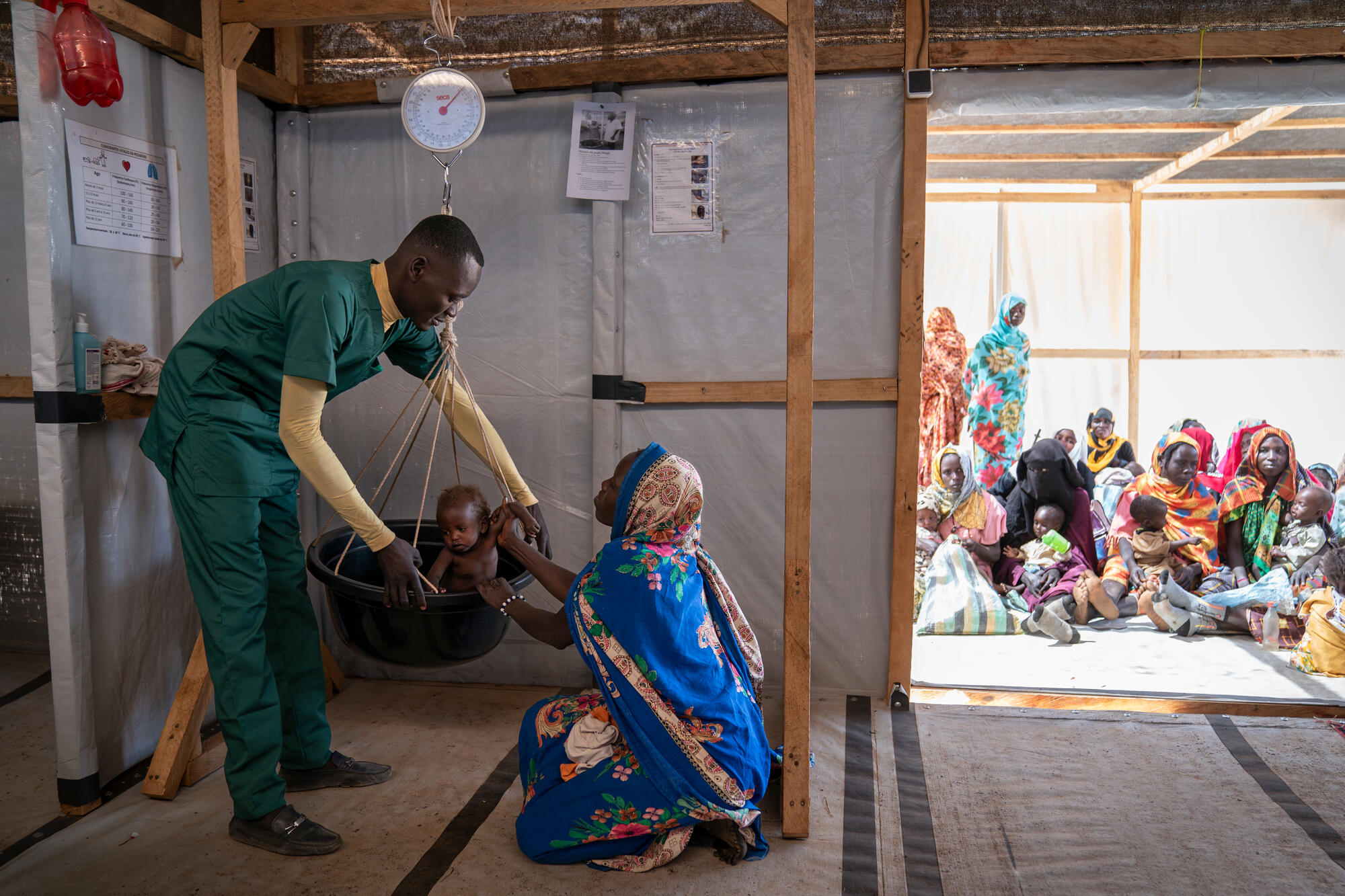
Broadening our scope for the Sudan crisis
These hygiene items are vital resources in an environment lacking essentials, from shelter to sanitation.
These scaling-up activities, costing over 1.7 million pounds, divert funds typically allocated for medical care to meet these urgent livelihood needs—a gap that mandated UN agencies have yet to address.
“MSF's core sector remains health, regardless of the contexts in which we intervene,” says Méria Aimée Nadje, project coordinator for MSF in Adré transit camp.
“However, in certain contexts, we sometimes broaden our scope of action. This is the case with the Sudanese crisis and its consequences for Chad, with the arrival of more than 600,000 refugees since last year.”
MSF and the crisis in Sudan
On Saturday 15 April, intense fighting broke out across Sudan with a wave of gunfire, shelling and airstrikes.
The violence between the Sudanese Armed Forces (SAF) and the Rapid Support Forces (RSF) has trapped millions of people in the middle of an unexpected conflict. Many have been forced to flee their homes while access to essential services such as healthcare has become increasingly difficult.
Médecins Sans Frontières / Doctors Without Borders (MSF) teams already working in Sudan have been responding to the crisis since its first moments.
